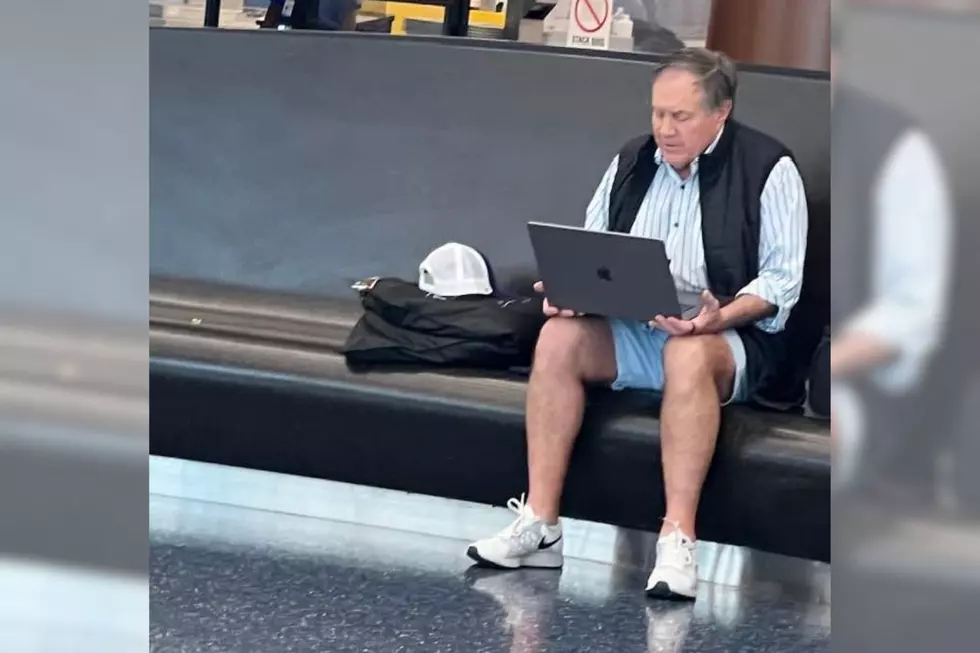
Lawmakers Oppose 100% At-Sea Monitoring Plan for Fishing Boats
NEW BEDFORD -- In a new letter to regulators, a group of Massachusetts lawmakers say a proposal to require at-sea monitors on every commercial groundfishing boat for every trip could put independent fleets and vessel owners out of business.
"We should be supporting this industry. Not drowning it in burdensome increased costs and regulations. I stand with our local fishermen, and urge the Council to reject this ill-advised proposal,” said Senator Mark Montigny today.
The New England Fisheries Management Council is considering Amendment 23 to the Northeast Multispecies Fishery Management Plan. It would require groundfishing vessels to implement 100-percent at-sea monitoring or a blend of at-sea and electronic monitoring. The goal is to improve catch accountability, but fishermen argue the proposal would be too costly without accomplishing the stated goal.
Since the commercial groundfishery was declared a federal disaster in 2012, revenues have declined, the letter states. Businesses do not have the revenues to absorb the added costs. Piling more costs on the industry at this time will favor larger vessels and those with larger catch allocations, forcing smaller vessel owners out of business, the lawmakers argue.
The letter to the New England Fisheries Management Council was signed by five state senators and 11 representatives, including Montigny, Sen. Michael Rodrigues, and Rep. Paul Schmid. The letter was copied to Gov. Charlie Baker, the entire Massachusetts Congressional delegation, to mayors and city councilors in Boston, New Bedford, and Gloucester, and to fisheries advocates.
Amendment 23 "proposes adjustments to the current groundfish monitoring program to improve the reliability and accountability of catch reporting in the commercial ground fish fishery to ensure there is precise and accurate representation of catch," including landings and discards, according to the council.
The 100% at-sea monitoring proposal is identified as the "preferred alternative" in a draft environmental impact statement, or DEIS, filed with the National Marine Fisheries Service. The council has held public hearings on Amendment 23 and plans to take final action during its Sept. 1 to Oct. 1 meeting.
Montigny said it doesn't make sense at this time to hurt the nation's food supply while hurting the economy. “Right now, millions of people are struggling to access food and proper nutrition," he said. "Fishing has a significant role to play in meeting this national challenge. It can also keep our local economy afloat as we continue to battle the devastating impact from COVID-19."
On the other side of the fence, the Conservation Law Foundation supports Amendment 23, saying 100% at-sea monitoring is needed to collect more accurate data about the fisheries "and put cod back on the path to recovery."
The CLF asserts that fishermen can not be trusted to behave properly without monitors aboard. "Since 2010, managers have set monitoring coverage targets ranging from 14 to 40 percent of trips. Even if these targets are achieved – and they often are not – recent analyses confirm that this low coverage level is inadequate for sustainable management. That’s because there is an accountability issue in the fishery," the environmental group states. "It’s like assuming that people drive the same way when a police car is behind them as when there’s not."
The law foundation asserts that low catch limits for over-fished stocks such as cod "actually incentivize fishermen to throw cod overboard on unobserved trips." When cod are not brought to shore, they are not counted against the stock’s low catch limit, which allows fishermen to keep fishing. They say it's estimated that up to 3,000 pounds of cod were discarded on unobserved commercial fishing trips in 2018, "but these fish are missing from any data available to scientists and managers." The CLF insists that "illegal discarding and misreporting are direct results of inadequate at-sea monitoring."
The lawmakers who signed the letter say that's overstated and that unreported discarding is not a fishery-wide problem requiring drastic action.
Fishermen have also said that requiring a human monitor on each boat would decrease crews’ ability to properly distance, possibly triggering outbreaks of COVID-19, because commercial fishing requires that workers be close to each other in confined wheelhouses and crew spaces.
Final action on Amendment 23 is expected during the Council’s next meeting scheduled for September 29 to October 1, 2020.

More From WBSM-AM/AM 1420









